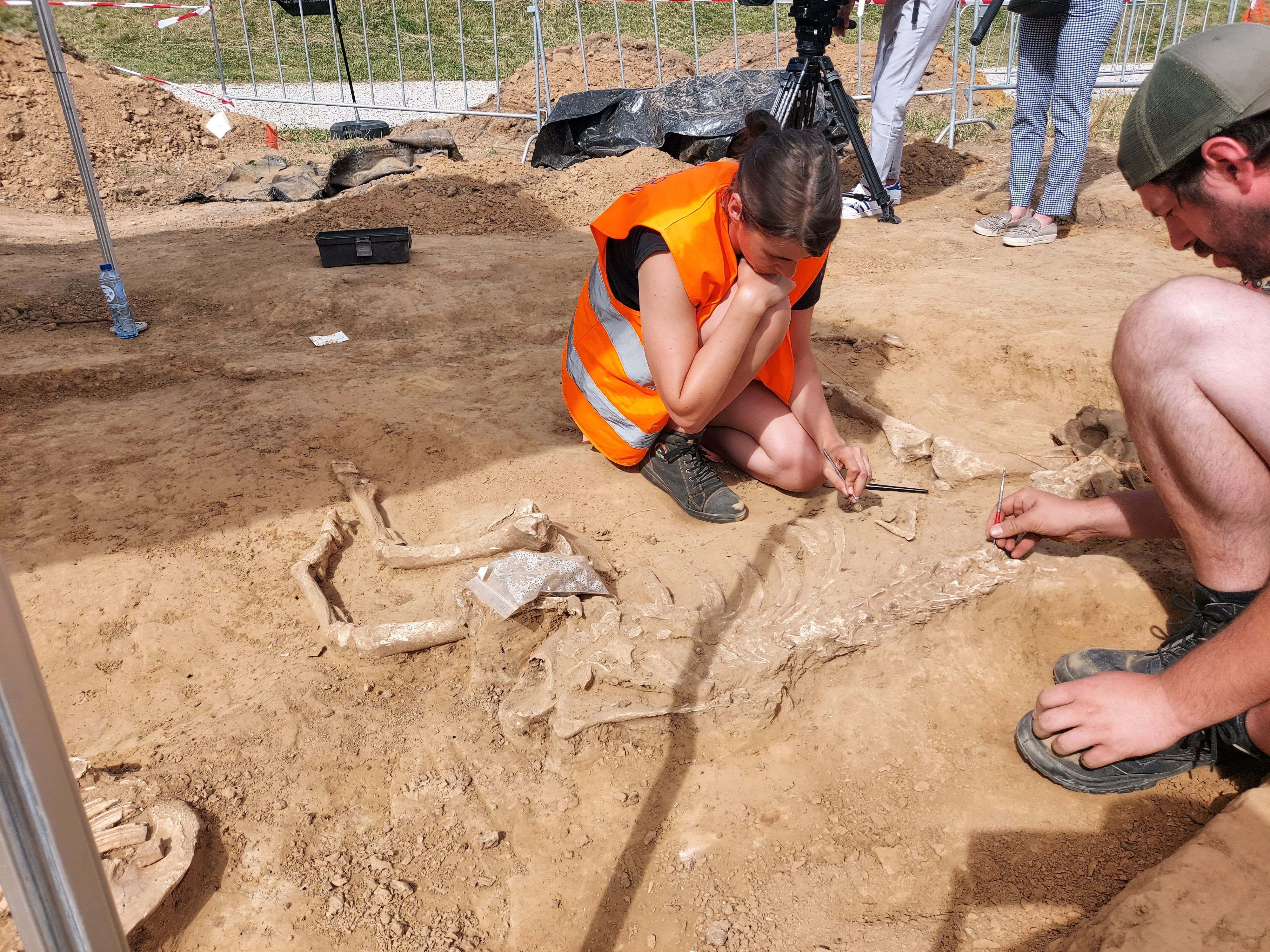New bones uncovered from Battle of Waterloo

An international team of archaeologists uncovered human and animal bones near the Mont-Saint-Jean farm in Waterloo last week. They presented their findings on Wednesday. According to them, these are "extremely rare finds on a Napoleonic battlefield".
During the Battle of Waterloo (18 June 1815), the Mont-Saint-Jean farmstead served as a field hospital for the Allied troops, led by the Duke of Wellington. In 2019, as part of the "Waterloo Uncovered" project, researchers found the remains of three deposed legs there, after which work was halted due to the corona pandemic.
Since this year, excavations have been taking place again and last week they produced results. In an orchard adjacent to the farmstead, researchers found a human skeleton and the bones of horses or mules.
"What we see here is the reality of war," explained Tony Pollard, a professor at the University of Glasgow and one of the leaders of the project. "Dealing with the wounded in these battles, which caused over 10,000, was a huge challenge. There was no great ritual or sign of respect. The grave that was uncovered makes it clear that the bodies were simply left here."
Apart from the Mont-Saint-Jean farm, excavations also took place this year in Plancenoit, where the bloodiest battles took place during the Battle of Waterloo. In particular, a hundred or so musket balls were found there.
(TOM)
A horse skeleton found at the Mont-Saint-Jean farm in Waterloo, Belgium. - © BELGA PHOTO AXEL CLEENEWERK